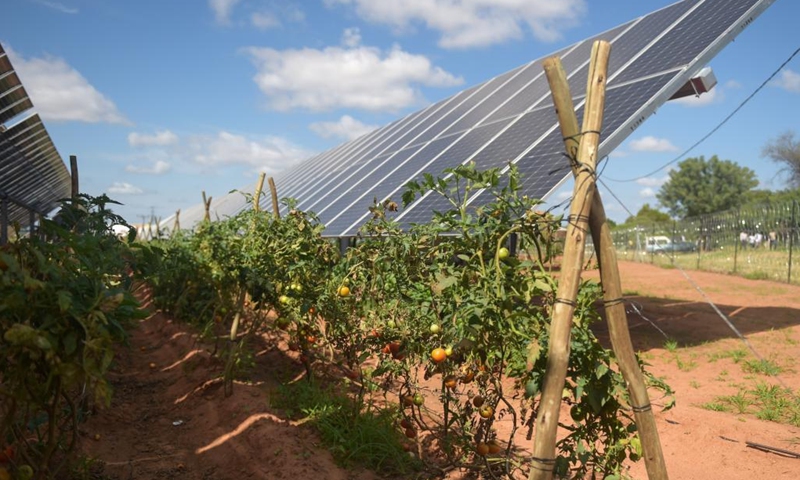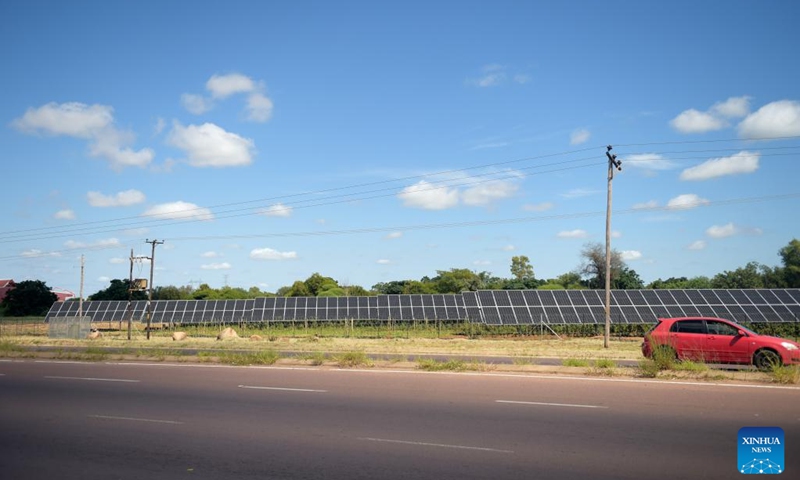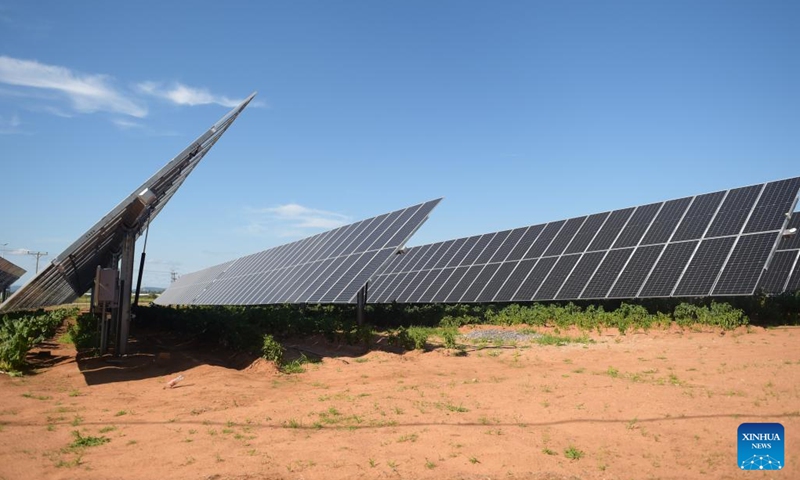
Tomatoes grow under solar panels at Botswana University of Agriculture and Natural Resources in Gaborone, Botswana on March 15, 2023. Botswana University of Agriculture and Natural Resources (BUAN) launched an Agrivoltaic project, the first of its kind in the southern African country, in Gaborone, the capital of Botswana, on Wednesday. Agrivoltaic is a concept that combines food production (both crops and livestock) with photovoltaic electricity generation.(Photo: Xinhua)

A car passes solar panels at Botswana University of Agriculture and Natural Resources in Gaborone, Botswana, on March 15, 2023. Botswana University of Agriculture and Natural Resources (BUAN) launched an Agrivoltaic project, the first of its kind in the southern African country, in Gaborone, the capital of Botswana, on Wednesday. Agrivoltaic is a concept that combines food production (both crops and livestock) with photovoltaic electricity generation.(Photo: Xinhua)

Horticultural products grow under solar panels at Botswana University of Agriculture and Natural Resources in Gaborone, Botswana on March 15, 2023. Botswana University of Agriculture and Natural Resources (BUAN) launched an Agrivoltaic project, the first of its kind in the southern African country, in Gaborone, the capital of Botswana, on Wednesday. Agrivoltaic is a concept that combines food production (both crops and livestock) with photovoltaic electricity generation.(Photo: Xinhua)
Botswana University of Agriculture and Natural Resources (BUAN) launched an Agrivoltaic project in Gaborone, the capital of Botswana, on Wednesday.
The project, the first of its kind in the southern African country, is a 1-megawatt solar installation that provides power to the university during the day. Based on the regulated tariffs, the project feasibility assessment predicted that the university's electricity bill would drop by more than 50 percent in the middle term, with any excess power going into the national grid.
Agrivoltaic is a concept that combines food production (both crops and livestock) with photovoltaic electricity generation. BUAN farms horticultural products under solar panels to maximize land use. The panels reduce moisture loss from the ground and protect crops during the summer's extreme heat. The panels have control motors that allow them to track the movement of the sun.
Vice President of Botswana Slumber Tsogwane said at the launch ceremony that the launch comes two years after the development of the Integrated Electricity Resource Plan for Botswana, which advocates for aggressive renewable energy development.
"As a government, we made a commitment to embark on a process of moving away from our carbon-intensive modes of energy generation, as thus, Integrated Electricity Resource Plan stipulates that at least 15 percent of the electricity should come from renewable energy by 2036," said Tsogwane.
The project was funded and carried out in the private sector with funds raised from international funders totaling up to 15 million Botswana Pula (about 1.1 million U.S. dollars). The project, on a plot of land measuring 8,000 square meters, started its construction work in December 2021 and was completed in August 2022.
BUAN has demonstrated that the private sector and academic institutions can form a vibrant partnership that not only fosters research but also generates financial benefits, said BUAN Vice Chancellor Ketlhatlogile Mosepele.
